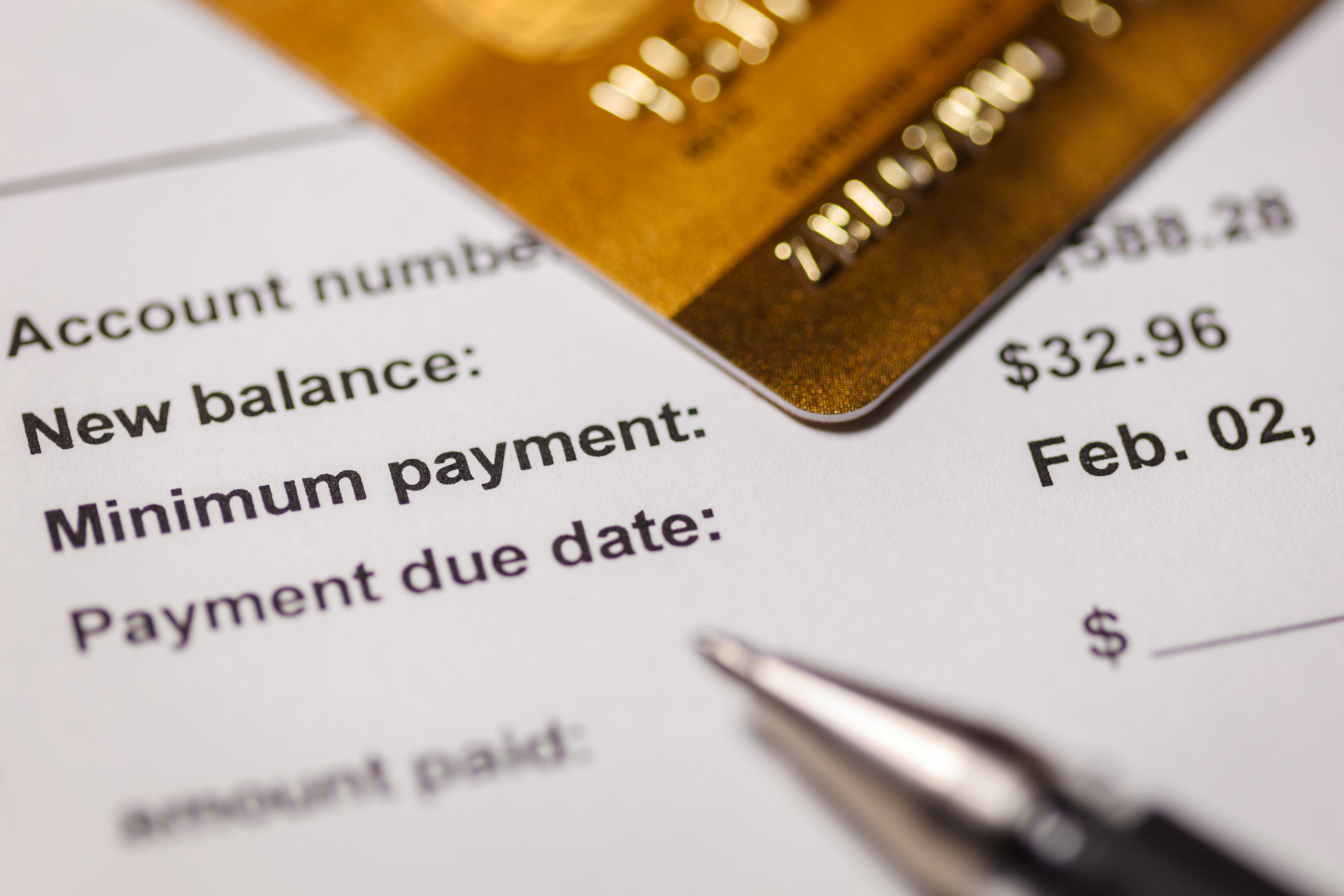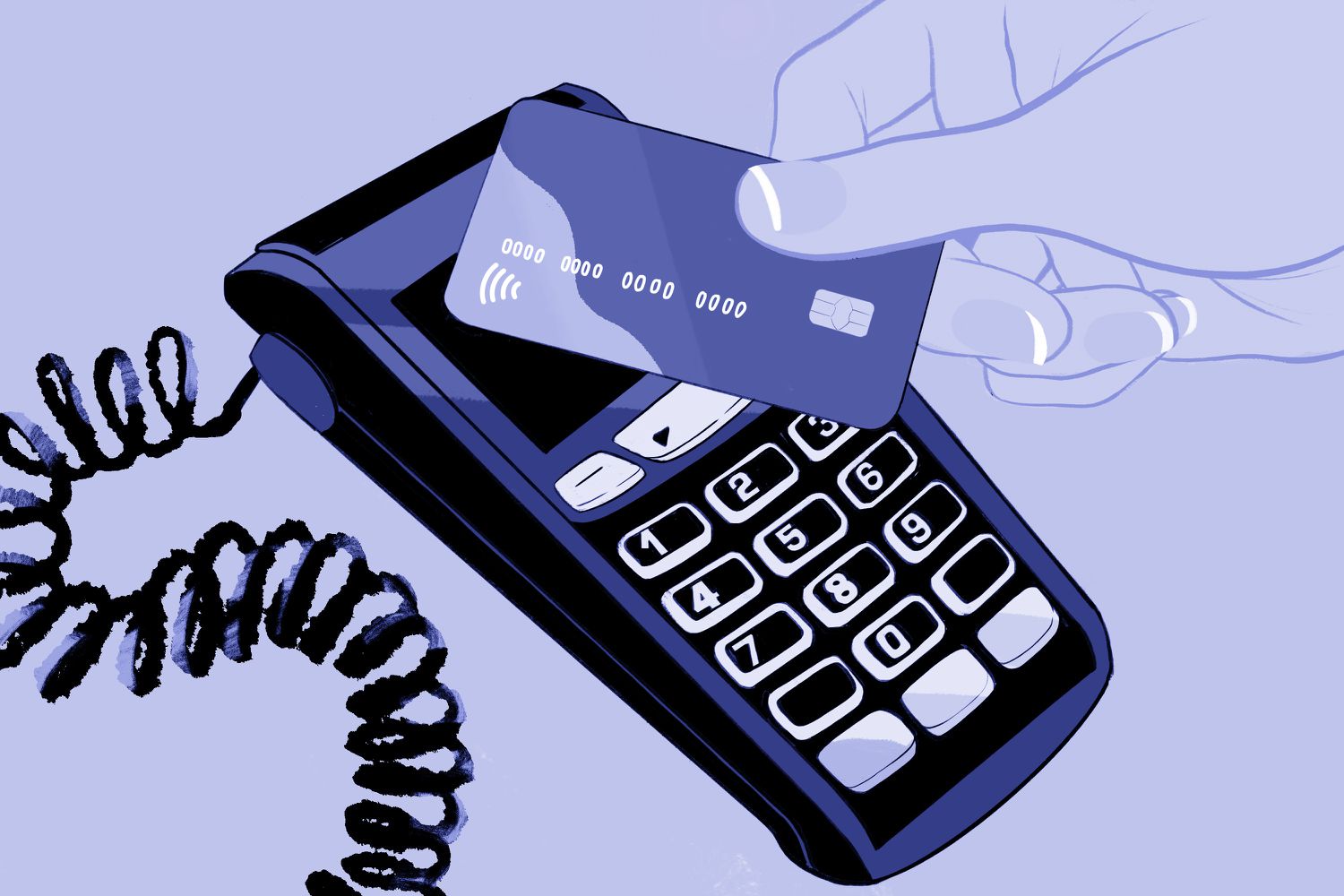Ways To Stop Paying More Than Minimums On Monthly Bills
In today's fast-paced world, financial management is crucial, and finding ways to stop paying more than minimums on monthly bills is a key component of a sound financial strategy.

Morgan Barrons
Dec 11, 2023
The threat of minimum payments on monthly expenses looms big in the complex web of personal finance, possibly trapping people in an endless cycle of debt. Paying the minimal amount due each month may seem like a harmless practice, but it can result in a number of financial problems, such as rising interest rates and protracted debt payback.
It's time to end this pattern and take charge of your financial future. In this blog post, we'll explore ways to stop paying more than minimums on monthly billsand a curated collection of strategic approaches designed to liberate you from the shackles of paying more than the minimums on your monthly bills.
Every option, from clever debt prioritizing and budgeting to securing cheaper interest rates and adopting frugal spending practices, promises to move one step closer to financial empowerment.
The Minimum Payment Maze
The Minimum Payment Trap is a dangerous enemy in the complex world of personal finance, stealthily taking away hard-earned money and trapping people in an endless cycle of debt.
For everyone aiming for financial independence and stability, comprehending the nuances of this trap is essential. The minimum payment has spread throughout the United States, as evidenced by data showing the full scope of its effects.
Recent research indicates that a sizable portion of credit card users merely pay the minimal amount due each month. But this ostensibly practical decision comes at a high price, adding to the nation's soaring credit card debt, which has topped a startling $1 trillion in the last year.
The Deceptive Appeal Of Minimum Payments
Minimum payments could provide a little relief, enabling people to pay their bills right away without suffering too much hardship. But this temporary respite masks a long-term financial maze. Compound interest rates are the trap; they have the power to turn even small loans into significant financial obligations over time.
The High Cost Of Minimum Payments
People who give in to the temptation of minimal payments unknowingly expose themselves to excessive interest rates. This implies that a significant amount of the minimum payment is used to service interest rather than pay down the original debt in the USA, where credit card interest rates sometimes surpass 15%.
Therefore, a seemingly prudent financial decision may really start a never-ending debt cycle, lengthening the loan term and dramatically raising the total cost of borrowing money.
Easy Ways To Cut Your Expenses
Start Tracking Your Spending Habits
Determining where the money is going is the first step towards reducing spending. Tracking your spending for more than 30 or 60 days would open your eyes.
The traditional method of keeping track is to record each cost as it is incurred. Many people who are trying to minimize costs give up because of that laborious process. Fortunately, technology can do our "writing down" for us since we live in the twenty-first century.
Check your statements if you use a debit or credit card for all of your purchases. Examine every purchase you made and decide what you truly needed against what you just "wanted."
Printing out the statement and using different colored pens or highlighters to mark different categories of spending is one technique to help clarify things. Or put them in writing, with headers like "needs" and "wants."
On debit card accounts with spending categories, some financial institutions even provide a graph or pie chart that illustrates where your money was spent. Make sure you have receipts if you do pay with cash.
Cancel Unnecessary Or Unused Subscriptions
The majority of consumers subscribe to various services on a monthly basis, including internet, cell phones, magazines, cable TV or streaming, and weight reduction programs. You probably don't give it much thought when you set one up, but the money is taken out of your account each month. This is the moment to scrutinize it. Consider this;
- To what extent do you utilize this?
- Are you actually in need of this?
- Is this something you can live without?
Go through your email and unsubscribe from any newsletters or recurring adverts that come from that source when you cancel the subscription.
Never put off canceling a subscription just because it appears difficult or like a one-time cost that isn't worth the bother. Reducing spending should be viewed as a thousand slow deaths rather than a single severe blow.
Remember to pay for your mobile service and cable as well. Is it possible to reduce your current plan or obtain a more affordable one from another provider? Think about less expensive TV options, but watch out for piling up too many streaming subscriptions.
Give Sustainability First Priority
Reducing your environmental impact is possible while cutting costs in some of the most excellent methods. The most straightforward and most complicated step would be to go to thrift stores and buy used goods, including clothes.
Using public transit instead of a car and paying insurance is another, if obviously challenging, method to cut costs and help the environment. This includes cycling your bike to a public transit stop and loading it onto a bus or train when you need to go a considerable distance from your house for business or to go shopping.
You may assist the environment and your pocketbook by installing water - and energy-efficient appliances, shutting off the water while you wash your teeth, and installing energy-efficient light bulbs.
Reduce Your Accommodation Costs
Housing is one of your most enormous costs; for individuals whose annual income is less than $50,000, housing accounts for at least 36.6% of their income. This is more than the 30% general guideline that financial experts advise. When evaluating mortgage applications, lenders like to see that applicants spend around 28% of their pre-tax income on housing.
While cutting back on home costs can seem like a drastic measure. There are ways to downsize that might be simpler than you would imagine. There are several ways for renters to reduce their rent. A few are;
- Acquire a roommate.
- Relocate a paid parking spot.
- For a rent cut, offer to fix things yourself.
- Relocate to a less expensive apartment or even a less expensive portion of the nation or your region.
How To Get Out Of Debt?
List Out Your Debt Details
Developing a debt relief strategy demands precision and concentration. This entails carefully reviewing all of your debt. List the amounts owed for each outstanding obligation.
- Debt kind (credit cards, school loans, etc.).
- Creditor.
- Whole equilibrium.
- Rate of interest.
- Refund each month.
You can see how much you actually owe by looking at this list. It may also prove helpful in the future when you are establishing a plan for repaying your debts.
Start An Emergency Savings Account
You need an emergency savings account since life will go on even when your primary priority is paying off debt. Even though you might wish to pay off your credit card debt as much as possible, you would have to charge it again if you paid off half of it but were still unable to cover an emergency.
The majority of experts recommend saving three to six months' worth of living costs, so make sure to include a line item for savings when creating your budget. Initially, this might not be feasible, but as you settle smaller accounts, you can begin allocating that money to savings.
Submit More Than The Minimum Payment.
It's essential to pay more than the minimal amount owed each month if you want to discover how to pay off debt quickly. In this manner, you may address the interest and reduce the principal amount.
Apply the money you save by reducing your budget's spending (step two, above) to your debt. Furthermore, commit to apply any windfalls to debt reduction. Unexpected financial inflows include;
- Return of taxes
- Passing Down
- Refunds for excess money
- Money received from the sale of goods
Cut Down Interest By Making Biweekly Payments
Making biweekly payments is another strategy to pay off debt rapidly, or at least faster than you would otherwise be able to. This payment plan, which entails splitting monthly installments in half and making payments every two weeks, works exceptionally well for student loans.
For instance, if your loan payment is $300 per month, you pay $150 every two weeks. In this case, just make sure that the entire $300 is sent in before the deadline for your minimum payment.
You will make an extra payment by the end of the year as a result of this delay. One additional payment can shorten your payback period and lower your overall interest charges.
Let's say you have a $35,000 student loan amount with a 10-year payback period and 5% interest. By paying every two weeks, you may reduce the payback period by one year and avoid paying $1,113 in interest.
Try The Debt Snowball
You may also attempt debt reduction with the debt snowball approach if you are paying more than the minimum payment. With this debt repayment plan, you will pay the minimal amount owed on everything but the slightest obligation for which you will make the maximum payment possible.
You may swiftly pay off your smallest debt by "snowballing" payments toward it. Then, you can go on to the next lowest loan and make minimal payments on the remaining balances.
Assume you owe $5,000 on your credit card, $1,000 on your auto loan, and $10,000 on your education loans. Since the vehicle loan has the lowest overall sum, you should concentrate on paying it off first when using the debt snowball strategy.
By encouraging you to concentrate on one obligation at a time rather than several, the debt snowball approach can help you gain momentum and remain on course.
The debt snowball strategy is something you should only rule out if you have a title loan or payday loan. These loans should be repaid as quickly as possible since they often have substantially higher interest rates, between 300 and 400 percent APR on average.
Settle For Less Than You Owe
You can also speak with your creditors over the phone and work out a settlement that will often be far less than what you owe. Although you may handle this on your own, a number of outside businesses also provide debt settlement services for a charge.
The Federal Trade Commission does point out specific concerns, even if paying less than you owe and getting rid of old debts may seem wise. To begin with, while you're negotiating better terms, specific debt settlement organizations may urge you to cease making payments on your bills. This might have a harmful effect on your credit score.
The Crucial Role Of Budgeting In Monthly Expense Management
The cornerstone of prudent money management is budgeting, which acts as a compass to help people navigate the maze of monthly spending. It's more than just a tool for limitation; it's a potent empowerment mechanism that offers a path to long-term objectives and financial security.
The Importance Of Budgeting
Budgeting provides a clear picture of income and expenses while fostering financial discipline. It enables people to deploy resources sensibly by turning vague financial goals into concrete strategies.
A well-designed budget, when applied to monthly costs, guarantees that necessities are met, debts are paid off, and savings objectives are followed, avoiding the traps of impulsive spending and promoting a sense of financial stability.
Tips For Creating A Practical And Sustainable Budget
- Recognize Your Revenue and Expenses - Start by thoroughly listing every source of revenue and classifying monthly expenses. This serves as the cornerstone of a successful budget.
- Prioritize Essentials - Differentiate between spending on needs and frivolous items. Make housing, utilities, groceries, and loan repayments your top priorities, and devote a large amount of your income to them.
- Establish sensible objectives - Set attainable financial objectives, such as saving for a significant purchase, paying off debt, or accumulating an emergency fund. A sustainable budget is based on realistic goals.
- Allocation of Emergency Funds- Set aside money from your budget for an emergency fund to avoid using credit and to provide a safety net for unforeseen costs.
- Review and make adjustments on a regular basis- Since life is dynamic, your budget should also be. Review your financial plan often and make any adjustments to account for shifts in your income, spending, or financial objectives.
By adhering to these budgeting guidelines, people may confidently traverse the challenging terrain of monthly costs, securing their financial security and setting the foundation for a wealthy future.
Common Mistakes To Avoid When Dealing With Minimum Payments
Ignoring The Credit Card Statement Balance
Essential details like the total amount you owe, the minimum payment required, and the due date are all included on your credit card statement. Ignoring your statement balance might result in late payments and unforeseen financial hardships. Regularly check your statement to stay on top of your finances and make sure your payments are made on time.
Making The Most Of Your Credit Card
Overdrawing from your credit limit can result in overdraft penalties, higher interest rates, and a worse credit score. Using your credit card to the limit is a risky financial move since it may rapidly result in a build-up of unsecured debt and hardship.
Missing Payments
One of the most frequent credit card errors is making late payments, which may lead to penalty APRs, late penalties, and a bad credit history. Not only may missing payments increase financial strain, but they also make it more challenging to pay off credit card debt.
Not Checking For Fraudulent Activity
The digital era has seen a rise in credit card theft. Ignoring unlawful purchases on your credit card accounts might result in excessive debt and financial losses. Keep an eye out for questionable conduct and report it right away.
Refusing To Seek Expert Assistance
Many people who need help paying off credit card debt are reluctant to see financial advisors, debt reduction companies, or credit counselors for professional assistance. Ignoring expert advice might result in ongoing financial strain and debt growth.
Not Looking Into Debt Relief Alternatives
Many people need to be made aware of the several debt reduction options and services that may be used to manage credit card debt. If you don't look into these possibilities, your financial difficulties may get worse.
Frequently Asked Questions
Why Is It Essential To Go Beyond Minimum Payments?
Paying more than the minimum is essential to accelerating debt repayment, which will ultimately result in financial savings and avoid the long-term financial hardship brought on by high-interest rates.
What Does It Mean To Prioritize Loans With High-Interest Rates?
By reducing interest payments, expediting debt elimination, and freeing up funds for other financial objectives, prioritizing high-interest loans ultimately results in financial savings.
Why Is Building An Emergency Fund A Key Element In Preventing Reliance On Credit?
An emergency fund serves as a safety net for finances, allowing for the payment of unforeseen costs without the need for credit cards, interrupting the cycle of increasing debt and interest.
To Sum Up
Financial management must be approached strategically and proactively in order to escape the Minimum Payment Trap. People may take back control of their monthly expenses by adopting ways to stop paying more than minimums on monthly bills and strategies, including budgeting, prioritizing debt, and negotiating lower interest rates.
Necessary steps toward financial empowerment include understanding the effects of high-interest debt, making realistic budgets, and encouraging frugal spending practices.
In the end, one may achieve the financial independence and stability that are so frequently desired but attainable with deliberate and educated financial practices by committing to free themselves from the bonds of minimum payments. This will pave the way for a more secure and prosperous future.




